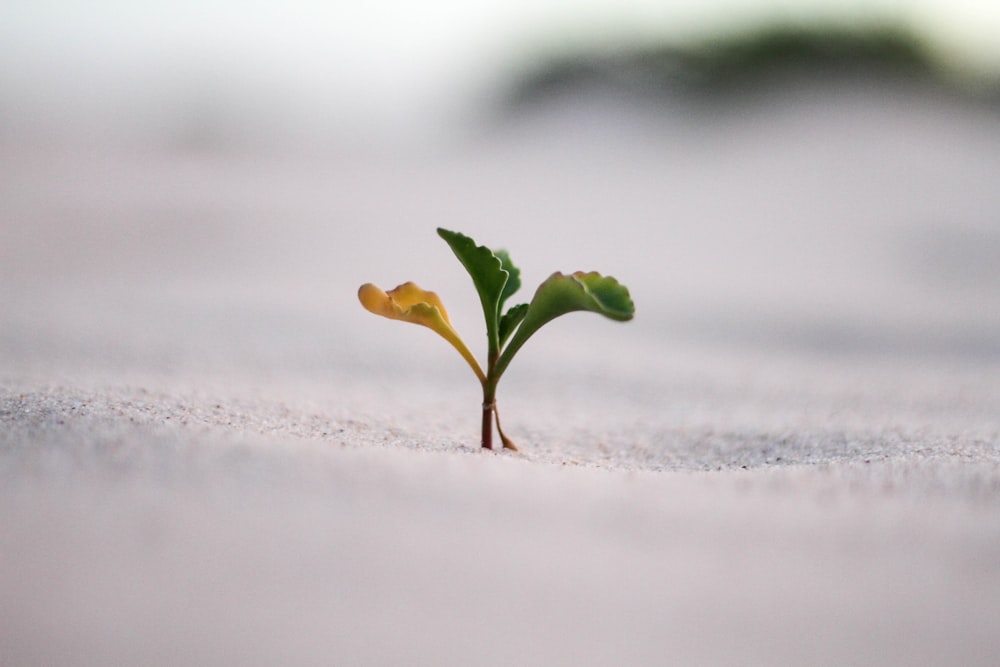Cover photo by Hermes Rivera on Unsplash
Written by Dray Salcido
“Discomfort is the call to set yourself free.” – Byron Katie
Few would disagree that training for a marathon is incredibly uncomfortable. Then why do people do it? Eating your vegetables isn’t as enjoyable as having a treat, but most would accept that it’s necessary. Staying out to have fun isn’t as important as getting enough sleep, and we all agree on that. Why? These dilemmas have obvious, physical repercussions that impact our well-being. In these situations we acknowledge that the discomfort of exercising, eating healthful foods, and sticking to a sleep regimen are preferred to the health problems that eventually develop from neglect. How do we apply this same understanding of necessary discomfort to the more ambiguous areas of life? The following suggests ways we can understand and cope with discomfort as it relates to our personal and interpersonal lives.
What does necessary discomfort look like?
What creates discomfort is relative to the individual. Our unique experiences will shape our natural ability to endure difficulty. Necessary discomfort can look like defensiveness in a conversation about race, or gender. Sometimes it shows up in anxiety when speaking your mind as the minority. Another way could be asking for what you want in your romantic partnership. Perhaps it presents itself most strongly when you watch a child make choices with which you don’t agree. Many of us grow to be more and more avoidant in the face of fear. Avoidance is a deliberate refusal to change, grow and learn. To break this pattern it requires that we unlearn our conditioning.

What can I do to grow from necessary discomfort?
We’re all aware of the reality of discomfort. A logical understanding won’t change the fact that it will almost always feel unpleasant. So, how do we cope with struggle, and fight against the urge to run from it?
Give it a name and a purpose.
A great mindfulness technique is to label your emotional experiences. This helps a person gain control over their feelings. Let discomfort be your guide, not your enemy. When pain surfaces ask, “Why am I feeling uncomfortable?” “What am I making this mean about me?” “What triggered this?” Questioning your experience creates awareness. Next time you feel uncomfortable, list all your sensations, thoughts, and emotions. Mindfulness practice has represented among the most effective strategies for coping with anxious thoughts (MacDonald, 2020).
-
Sensations: increased heart rate, sick to stomach, tired, hungry, etc.
-
Thoughts: “He thinks I’m a bad person; She isn’t safe; I’m not enough;” etc.
-
Emotions: fear, shame, hurt, anxiety, sadness, anger, shock, disgust, etc.

According to therapeutic research, suffering is meaningless without a reason behind it (Frankl, 1984). Practice naming why your pain matters. I.e. “It’s necessary for my child to mess up in order to become a better person.” Or, “Speaking my truth is how I practice honesty, and honesty is a core value of mine.” Or, “All my heroes achieved great things by learning to suffer with dignity.” No matter your reasons, know that defining and giving meaning will bring beauty to the tragedy.
Get over yourself.
Seriously, get over yourself. Understand that the greatest roadblock to growth is ourselves. Entitlement only gets in the way of seeing clearly. What made you above suffering? That is a basic, human condition and unless you’re an alien, superhero, or God, there’s no out for you. I don’t say that to invalidate the real pain that comes from struggle. The opposite. Knowing that we all share in this can unify our experience, and foster more connection. Avoid black and white thinking. Be humble, teachable, and open. Research shows that the single greatest factor for positive mental health is cognitive flexibility (Hepworth, 2010). Move with the discomfort, not against it.
Tell your story.
It’s okay if you prefer to keep certain things close to your heart. Trust is earned and it is a privilege to hear one’s story. However, I do encourage that we share our experiences as often as we can. Speaking candidly about our discomfort is how we own our story, not the other way around. This requires more discomfort of being vulnerable and authentic. But, how else do you expect to receive support in your relationships if no one knows you’re uncomfortable except you? In one study, researchers found that sustaining uncomfortable dialogue was the essential factor in working through conversations around taboos like race, religion, and mental health (Sakamoto, 2005).

What you can expect as you grow and change.
First, you can expect others to take personal offense at your resolve to change. One thing I’ve observed in my personal dance with discomfort is how uncomfortable it makes other people feel. This is a phenomena I don’t fully understand. Why not be happy for others when they grow? But, for whatever reason, your personal improvements will rub people the wrong way. You can expect them to point this out as if it’s some sort of failing on your part. Don’t let this keep you from trying. Rather, let it be evidence that you’re doing something right. Many of the greats were not appreciated during their time. Becoming yourself will disrupt the status quo – this is a good thing. Second, you can expect to have really hard days. There will be times when you question your own strength and abilities. Most of the time you’ll feel the urge to avoid, or indulge thoughts of self doubt. We’re not meant to feel good all the time. This is normal and necessary. It takes time to navigate discomfort. And third, it will be totally, totally worth it. The refiner’s fire is painful, but necessary in the making of gold. Believe that there is joy in hindsight. You’ll see.

Recognize that to resist the reality of discomfort is madness. It is also a battle you’ll never win. Spend your time listening to your discomfort, rather than actively working against it. Get out of your own way. Feel your feelings. Speak your truth. It’s all super uncomfortable and scary and uncertain, and there’s just no way around that. But, remember that “discomfort is a wise teacher” (Caroline Myss).
 This week, hold space for discomfort. When you feel defensive in conversations, practice analyzing your thoughts, emotions and sensations as described above. Count to ten before you respond. Be authentic with yourself and others. If you’re feeling uncomfortable, speak up! Then walk through why and what is creating your struggle. Give yourself grace, and be patient. You can do this!
This week, hold space for discomfort. When you feel defensive in conversations, practice analyzing your thoughts, emotions and sensations as described above. Count to ten before you respond. Be authentic with yourself and others. If you’re feeling uncomfortable, speak up! Then walk through why and what is creating your struggle. Give yourself grace, and be patient. You can do this!
References
Frankl, V. E. (1984). Man’s search for meaning: An introduction to logotherapy. New York: Simon & Schuster.
Hepworth, D. H., Rooney, R. H., Rooney, G. D., Strom-Gottfried, K., (2010). Direct social work practice: Theory and skills. Brooks/Cole-Thomson Learning.
Macdonald, H. Z., & Olsen, A. (2020). The role of attentional control in the relationship between mindfulness and anxiety. Psychological Reports, 123(3), 759-780.
Sakamoto, I., & Pitner, R. O., (2005). Use of critical consciousness in anti-oppressive social work practice: Disentangling power dynamics at personal and structural levels. The British Journal of Social Work, 35(4), 435-452.






















